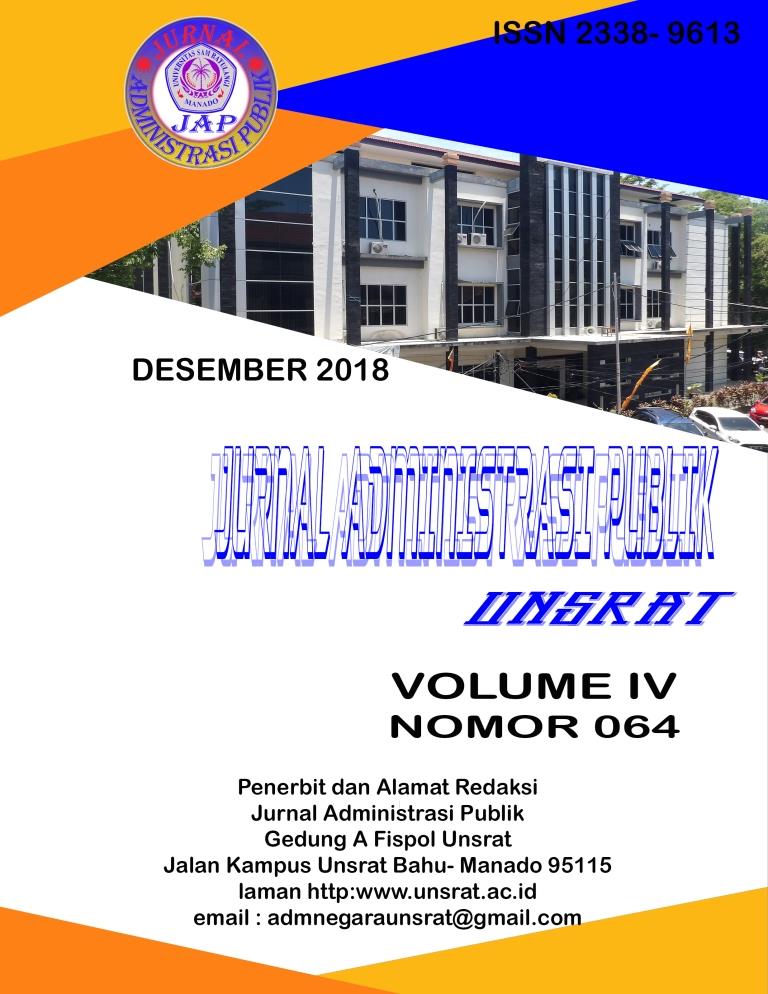EFEKTIVITAS PELAKSANAAN PROGRAM AYO NABUNG SAMPAH DALAM MENJAGA DAN MEMELIHARA KEBERSIHAN LINGKUNGAN DI KECAMATAN MAESA KOTA BITUNG
Abstract
The aims of this research is to examine the effectiveness of implementation Ayo
Nabung Sampah program in maintaining environmental cleanliness in the subdistrict of Maesa
the city of Bitung. This research use descriptive qualitative approach with theory of effectiveness
by Sondang Siagian (2000). The informants of this research are the parties involved in the
implementation of the Ayo Nabung Sampah program in Maesa subdistrict. The collection
techniques used interviews and documentation and the data analyzed can be done by data
reduction, data presentation, and resulting the conclution of the data. The results showed that
the Ayo Nabung Sampah program already operating effectively enough. It can be seen from the
clarity of objectives to be achieved, goal achievement strategy, analysis process and the steady
policy formulation, good planning, preparation of appropriate programs, and the availability of
infrastructure. However, there are still two imdicator are didn’t optimal, that is goal
achievement strategy, the strategies used in this case are socialization and promotion, the
socialization and promotion carried out are not optimal because the mindset and behavior of the
society are not able tp be changed. the socialization and promotion carried out are not optimal is
also impact on not understanding the society and also external parties regarding the purpose of
this program. And the second indicator is the availability of infrastructure in Kekenturan Satu
Urban village are still did’t optimal.
Keywords: Effectiveness, Ayo Nabung Sampah program








